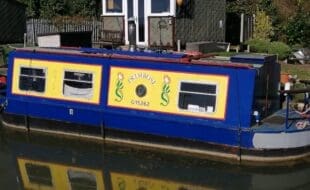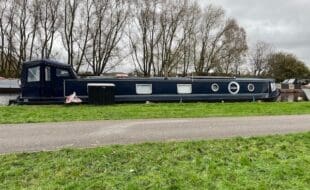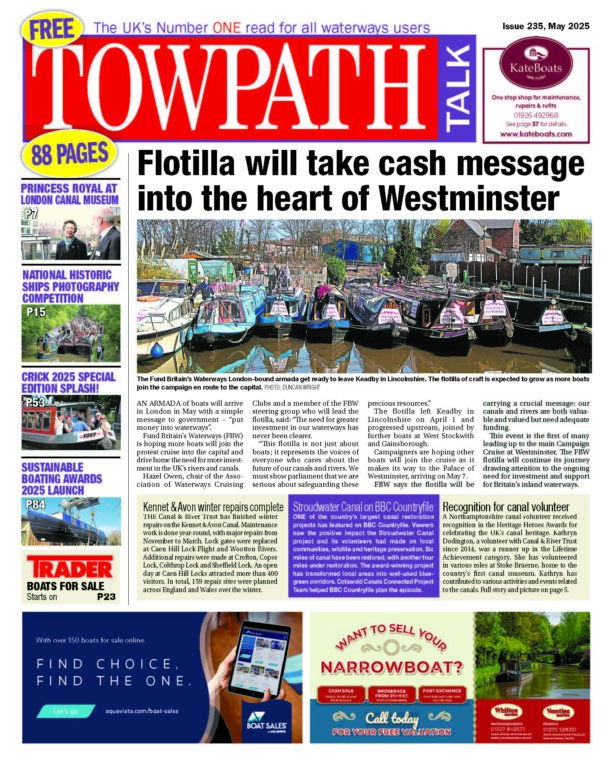Jonathan Mosse’s monthly look at freight development on the inland waterways.
IT IS my unshakeable belief that the fact that we still have a functional commercial inland waterways system is largely down to individuals and not to the people who are entrusted with running them – the navigation authorities.
Wood, Hall & Heward (WHH: a well-established home counties inland waterways company) depicts the surnames of three such individuals who bring flair and dedication to the waterways, keeping carrying alive and providing a springboard for what one can only hope will be a climate change-driven renaissance.
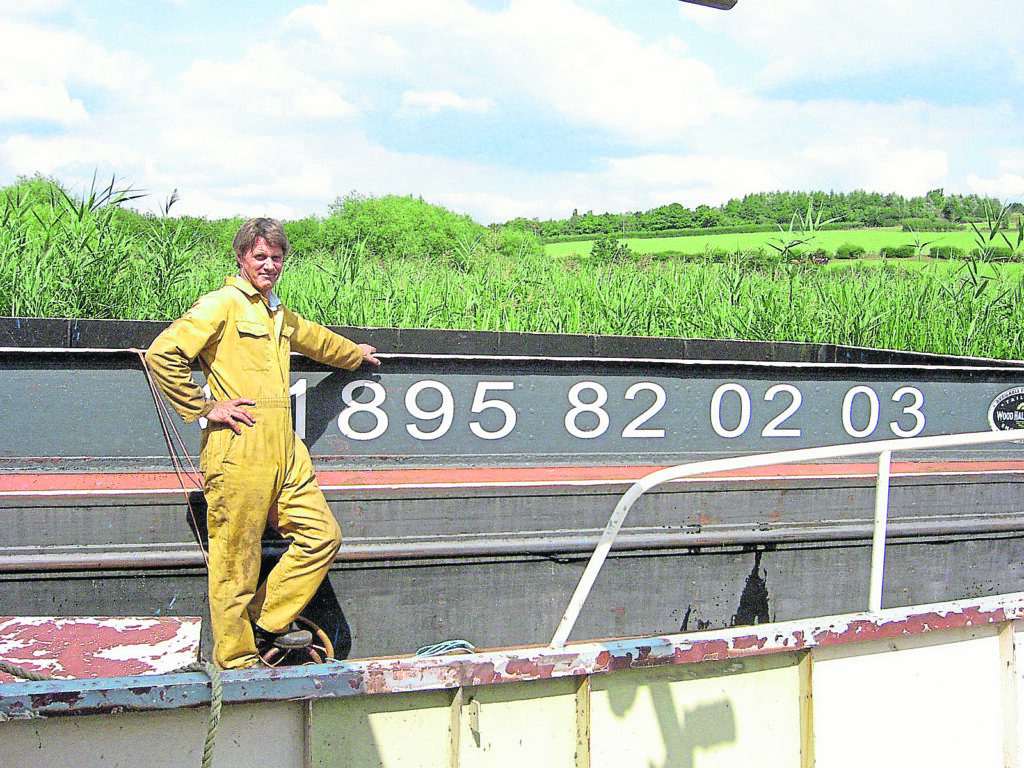
Recently retired Gerry Heward rightfully occupies this month’s spotlight. Growing up in Yorkshire, a bus ride into nearby Halifax crossed the derelict Halifax Arm of the Calder & Hebble Canal where, in the distance, working boats were still visible.
School saw dinghy and later some lumpy-water sailing, while study for an applied biology degree – commencing in 1972 at Brunel University – quickly led to affordable accommodation on a somewhat tired, wooden butty called Mary, moored beside what was then known as Uxbridge Marine, on the Grand Union Canal.
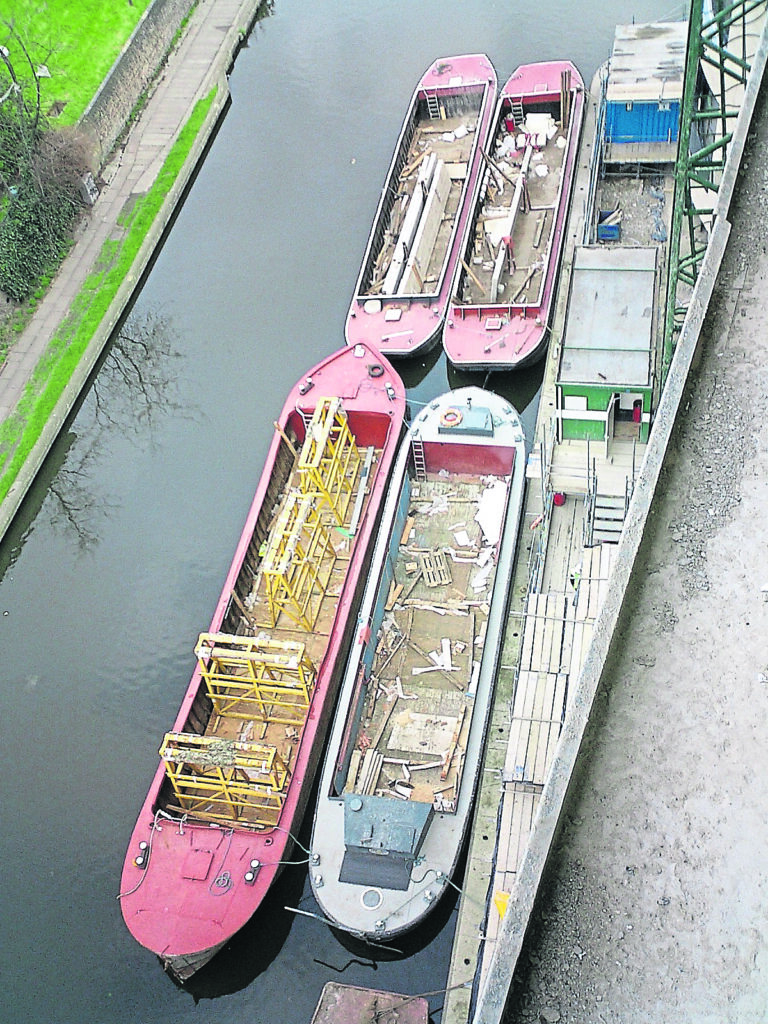
Fellow (mature) students, Tam and Di Murrell, were at that time also operating ‘a pair’ between Brentford and Boxmoor on what was known as the ‘lime juice run’. The Murrells, long since retired to the Continent on their Dutch barge (where for a while they ran helmsman courses) were waterways carrying stalwarts for which they deserve considerable recognition and a piece in their own right.
The butty morphed into a wooden ex-fishing boat, which enjoyed a sojourn on the mud of Leigh-on-Sea (where its owner briefly worked for a carpet company) before the pair returned to Uxbridge and what was now the Uxbridge Boat Centre, intent on divesting itself of a yard full of decaying wooden vessels to which Gerry somewhat grudgingly lent a hand.
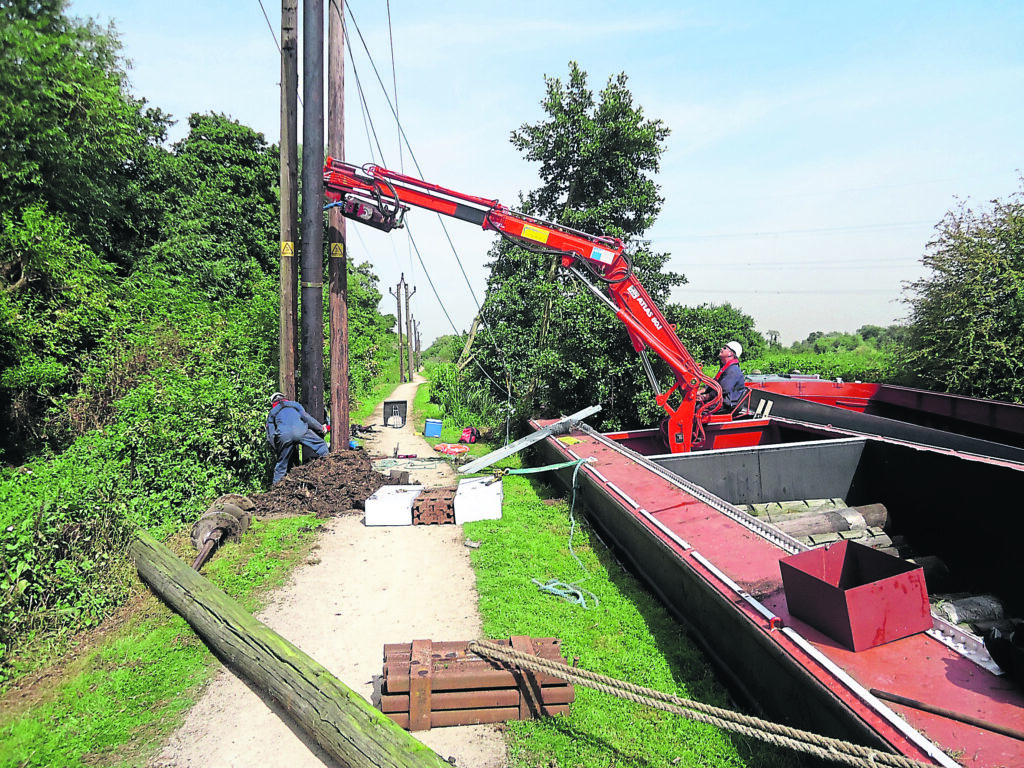
That done, he combined his fortunes with the activities of the William Press Company which at that time held a rather bizarre contract emptying redundant sewage settling ponds at Perry Oaks: a potential ‘soft landing’ of sandy lagoons at one end of Heathrow’s main runways!
For a year the chance to drive the latest agricultural tractors and spreading equipment proved irresistible until a chance reunion with the Murrells, now at Bull’s Bridge, came with the offer to assist with their new contract running grain from Tilbury up to Allied Mills at Town Lock, Addlestone.
Familiar with the ‘crinkly stuff’ below Teddington Lock, Gerry was an obvious candidate and, although the flow stuttered a bit in the early days, a pattern was eventually established employing a 300-ton Dutch barge on the run from Tilbury to Walton-on-Thames, where the grain was transhipped into narrowboats Rigby and Piktor (later replaced by Leonie and Bicester) for onward carriage along the much shallower Wey.
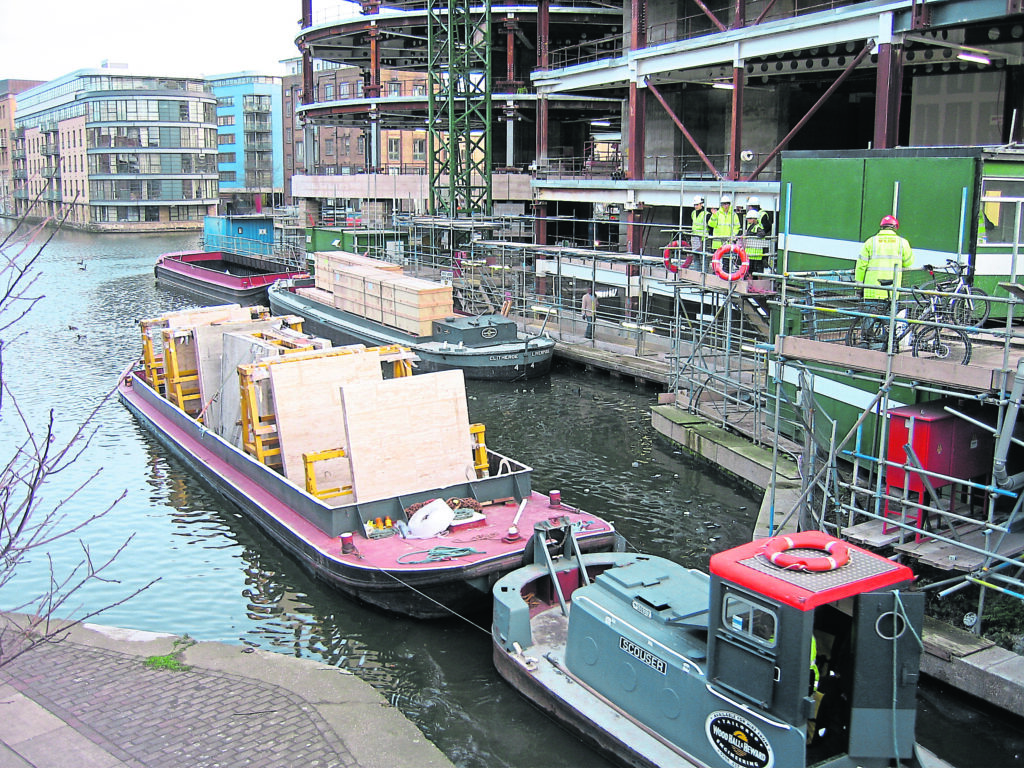
To avoid the expense of transshipment, this approach was later modified by employing two vessels that could navigate both the Thames and the Wey: the Annie (a Dutch barge) and the Clinton – a 70ft x 14ft Humber barge: both craft carrying in the region of 70 tons, with five round trips a fortnight attainable.
Although the lime juice run finished in 1981, the Murrells were still into everything carrying, including trip boats, before stabilising mainly on waterways infrastructure maintenance tasks: a forerunner of what WHH was ultimately to be founded upon.
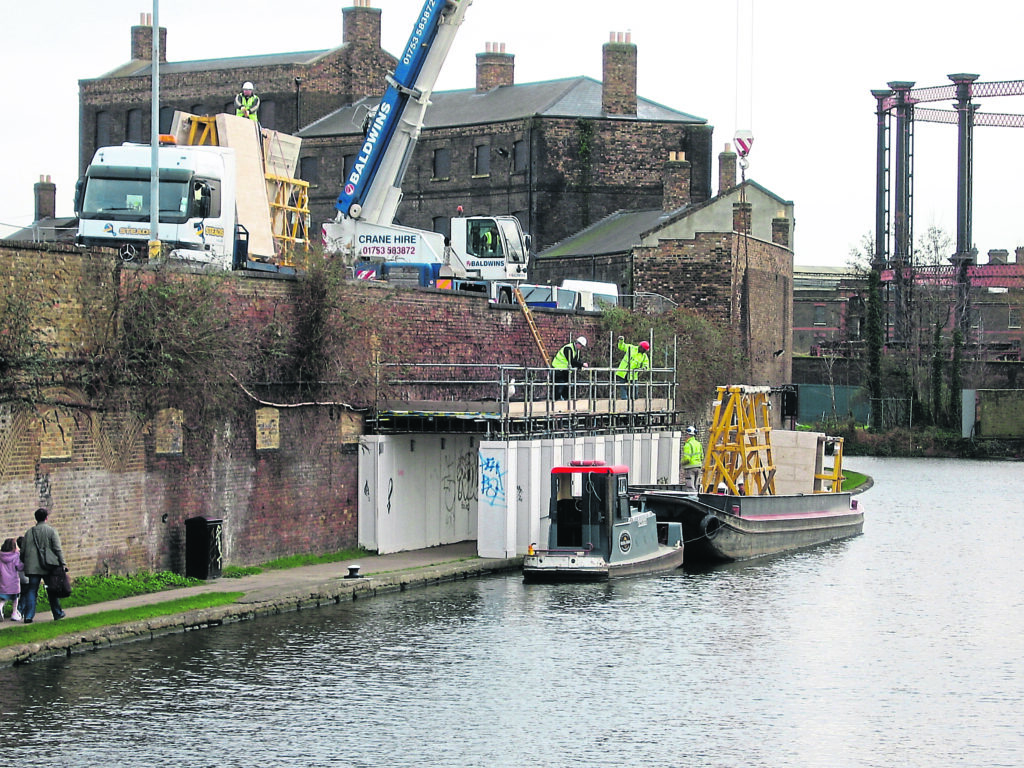
Work for Gerry at this time revolved around estuary, coastal and even short sea trips, largely carrying aggregate and roadstone, although for good measure fertiliser and bauxite found its way into the mix: trade which was largely plied around the Thames estuary and north towards Harwich.
In 1987 he left the Murrells to study at Henley Business School for an MBA before joining a Greek Cypriot software company – Brainstorm – predominantly engaged in telecoms work: something of a niche area in those days. Interestingly, upon graduating with a second degree awarded by Brunel, Gerry went on to work part-time for Henley until he was 65.
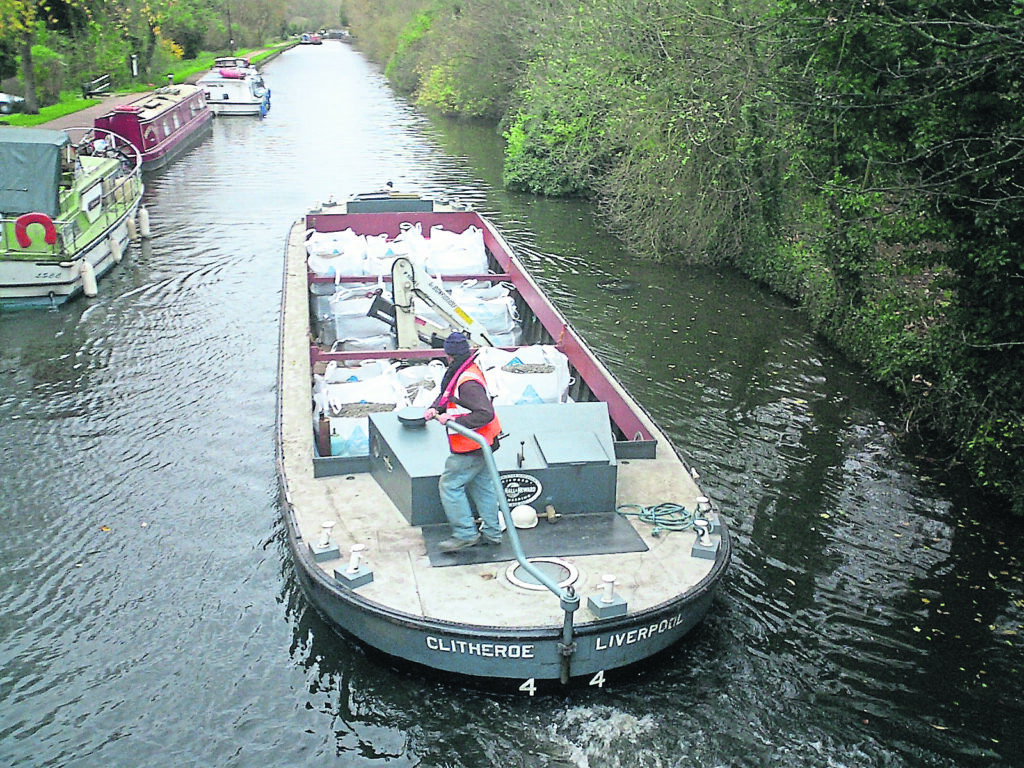
In 1995 he was contacted by Tim Wood, who was part of the Allied Mills grain-carrying scene from its inception, now with a workshop at Springwell Farm – beside the Grand Union, a little south of Rickmansworth – and owned by one Charles Hall.
The nimble-witted among my readers will already have combined the appropriate surnames and guessed what’s coming next.
For Gerry it arrived somewhat more sedately in the form of a languid message along the lines of, “there are a couple of work flats sunk in the river at Staines and I think I know the owner. Do you reckon they’re worth having?”
To be continued next month…e auspices of CRT, where it is without either a department or responsible officer.

